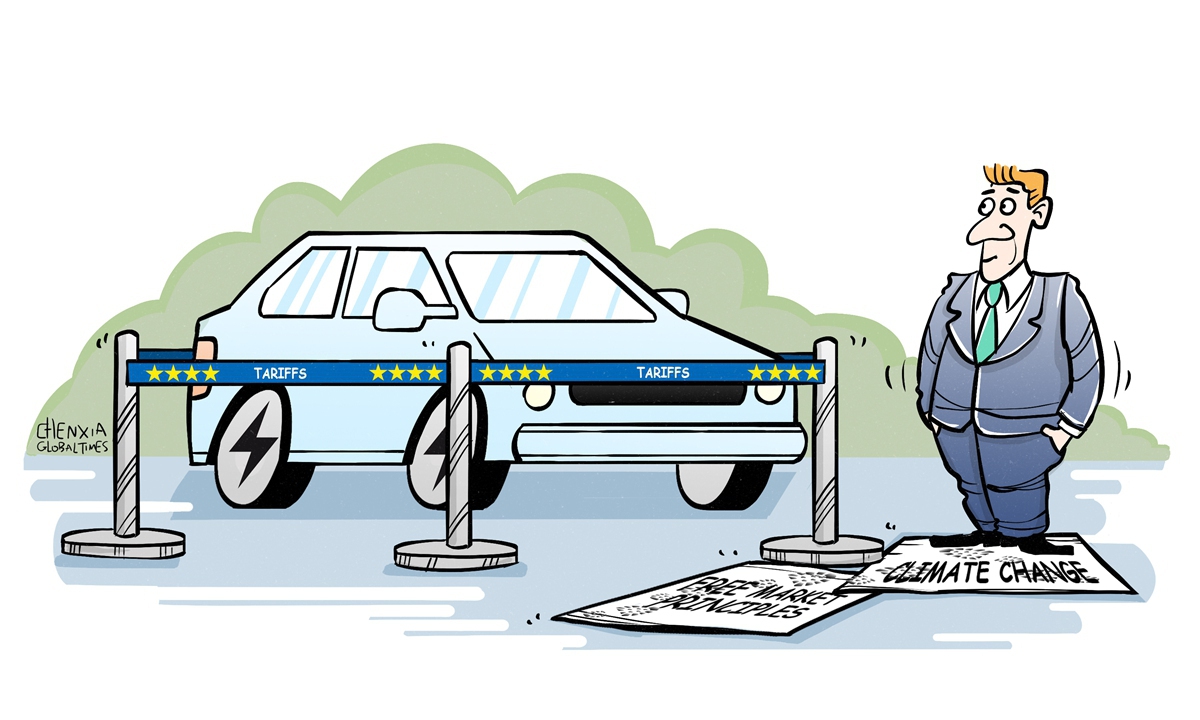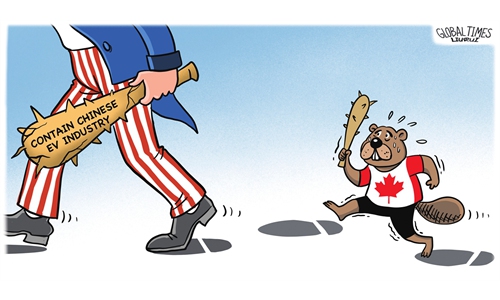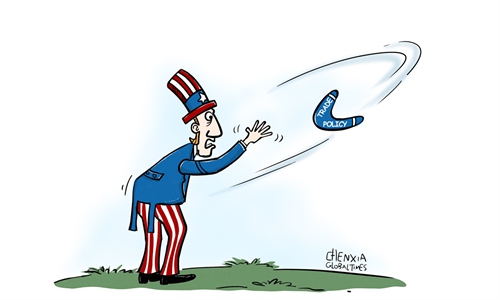
Illustration: Chen Xia/Global Times
Some European politicians' rhetoric advocating a tough stance on China may serve short-term political interests, but in the long run, this attitude could become a stumbling block to the EU's economic development, given the challenges facing the bloc.Kaja Kallas, the EU's incoming foreign policy chief, said during a confirmation hearing in Brussels on Tuesday that China needs to pay a "higher cost" for its "support to Russia," the South China Morning Post reported.
"China has changed over the past few years. It is now more a competitor and a systemic rival - our dependencies toward China in key sectors are our vulnerability. We need to de-risk," Kallas said.
Kallas' remarks suggest that some politicians in Europe will remain wary of China and uphold a tough stance toward China. This attitude not only sends worrying signs for the future of China-EU economic and trade relations, but may also hinder the EU's ability to effectively address its economic challenges.
The European economy is now seriously lagging behind. On the one hand, the improvement of economic productivity in the bloc has encountered bottlenecks, which are due to a slowdown in technological progress, rigidity in the labor market and difficulties in industrial restructuring.
On the other hand, changes in the external environment have brought unprecedented challenges to the European economy. The energy crisis has driven up production costs and triggered severe inflation, significantly eroding the consumption capacity of European businesses and individuals.
At the same time, high supply chain costs have become a major pain point for the European economy, and the rise of trade protectionism, along with geopolitical tensions, has made it increasingly difficult for some European companies to obtain raw materials and components and distribute products.
Take Germany, Europe's long-standing economic powerhouse, as an example. The German economy managed a mere 0.2 percent growth rate in the third quarter, narrowly avoiding the pessimistic expectations of slipping into a recession following a drop in the second quarter.
But its economy is still struggling with a gloomy outlook. Inflation hit 2.4 percent year-on-year in October, well ahead of the 1.8 percent recorded in September, while unemployment stayed steady at 6 percent in October, which is normally a month when unemployment falls. Also, German carmaker Volkswagen plans to shut three factories in Germany and lay off tens of thousands of staff, Reuters reported.
French economic growth will flatline in the current quarter as activity moderates in the wake of the Olympic Games, the country's central bank said on Tuesday in its monthly outlook.
Moreover, concerns over the future of trade with the US are rife in Europe. Some European officials are expressing anxiety about the uncertainties surrounding the EU's trade cooperation with the US and are calling for preparations to cushion potential impacts, according to media reports.
The EU needs to pursue a pragmatic approach to cooperation with China in order to maintain its flexibility in economic and trade relations. A hardline economic and trade policy stance toward China will only further restrict the EU's maneuvering space in economic cooperation, which will, in turn, exacerbate the EU's economic difficulties.
The EU's economic challenges cannot be relieved by bashing or sanctioning China. Productivity issues in Europe need to be resolved through internal reforms rather than being masked by playing tough against China. Relying on sanctions against China to divert attention from internal issues will be of no help. When European politicians, unable to tackle internal problems, turn their focus toward China to gain political support, they are just delaying necessary reforms within the EU. This irresponsible approach will ultimately harm the EU's economy even further.



